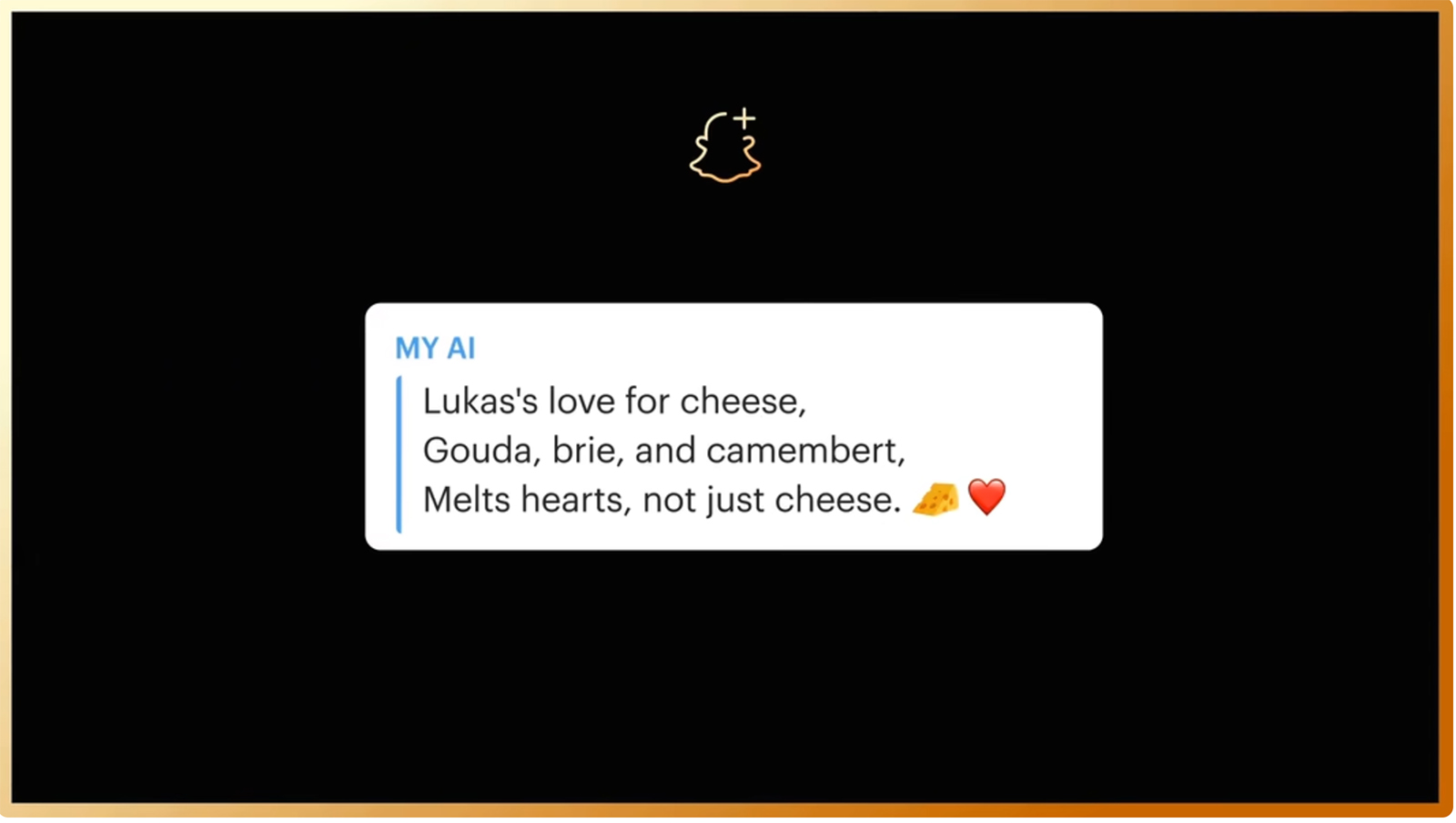The rise of AI chatbots has been meteoric this year, but there's growing evidence that they could be spreading just a little too fast. A large number of Snapchat users are voicing their frustrations about the app's ChatGPT-powered 'My AI' assistant.
Earlier this week, Snapchat rolled out its new AI chatbot to all of its global users, after trialing it on Snapchat Plus subscribers. And it hasn't exactly been met with universal acclaim, according to reports tracking the app's ratings on the App Store.
As spotted by TechCrunch, data from analysts at Sensor Tower revealed that, over the past week, Snapchat's average U.S App Store review was only 1.67 stars, with three-quarters of those reviews being one star. The reason? Further data from Apptopia shows that 'AI' has been the most common keyword in Snapchat's App Store reviews during the period.
Both of these reports show that Snapchat has received far lower ratings, and three times as many one-star reviews, as usual when compared to an average week. And that feeling is also reflected on social media like Twitter, where the responses to Snapchat's announcement of the decision are decidedly unhappy.
So why exactly has the wider rollout of a new AI chatbot been so controversial? The problem seems to be less the technology and more its implementation. The 'My AI' chatbot sits at the top of your Snapchat feed and, unless you're a Snapchat Plus subscriber, it can't currently be moved or unpinned.

If you are a Snapchat Plus subscriber, it's simple enough to unpin 'My AI' by going to your Chat Feed, pressing and holding the 'My AI' person, tapping on Chat Settings, and hitting 'Clear from Chat Feed'. But the inability to do this if you don't pay for the app is a common cause of the angry comments seen on Twitter and in app stores.
Some complaints also express understandable unease with Snapchat's 'My AI' professing not to know a user's location, before then helping them find nearby restaurants. Snap responded with a blog post about location sharing yesterday, confirming that 'My AI' doesn't "collect any new location information" that you haven't already agreed to.
The post underlines that its 'My AI' chatbot "only has access to a Snapchatter's location if they've already granted permissions to Snapchat". But this feature of the ChatGPT-powered assistant, which is based on the older GPT-3.5 model rather than GPT-4, would be more palatable if the chatbot itself was opt-in, rather than a default option for all users.
We asked Snapchat if it plans to make any changes to the app in response to the criticism, in particular letting non-paying users remove the AI chatbot. A spokesperson told us: "As we've been rolling out My AI, the vast majority of people with early access have been enjoying playing with it." But Snap also added that "as with all AI powered chatbots, My AI is always learning and we've appreciated all the feedback so far from our passionate community, as we continue to improve the experience."
It doesn't look like the ability to unpin the new 'My AI' chatbot will be rolling out for non-paying users very soon either, with Snap pointing out that users don't have to interact with My AI if they'd prefer not to. Which means that Snapchat's 'My AI' rollout could continue to be one of many AI backlashes we see this year, as AI chatbots become an almost mandatory feature for all apps.
Analysis: AI isn't always the answer

The rise of AI raises lots of broader questions – like its potential to destroy human creativity – but alongside those is an equally important one for the tech giants. Is this the best thing for our users, and do they really want it as a compulsory feature?
This Snapchat furore shows that AI's potential, and the need to be a 'first mover', can sometimes blind to companies to the reality that not everyone is as excited about AI chatbots as they are, particularly if the tech has access to personal data. And Snapchat is also far from the only example – Discord also recently had to backtrack on its reworded privacy policy after the introduction of several AI features.
Rolling out ChatGPT-style technology to our favorite apps is proving to be as difficult as developing usable AI in the first place. This is something Google has also wrestled with – after deciding to reluctantly release its Google Bard chatbot after the success of ChatGPT, the tech giant downplayed its potential by calling it a "souped-up Civic" compared to its rivals' supercars.
The lesson from all of this seems to be that, despite its incredible potential, AI-powered chatbots and features should still be considered 'nice-to-haves' rather than must-haves. While we can expect to see AI features become an important part of almost every app we use this year, they need to be rolled out slowly with human-style sensitivity and caution.
Wed, 26 Apr 2023 13:09:26 +0000
